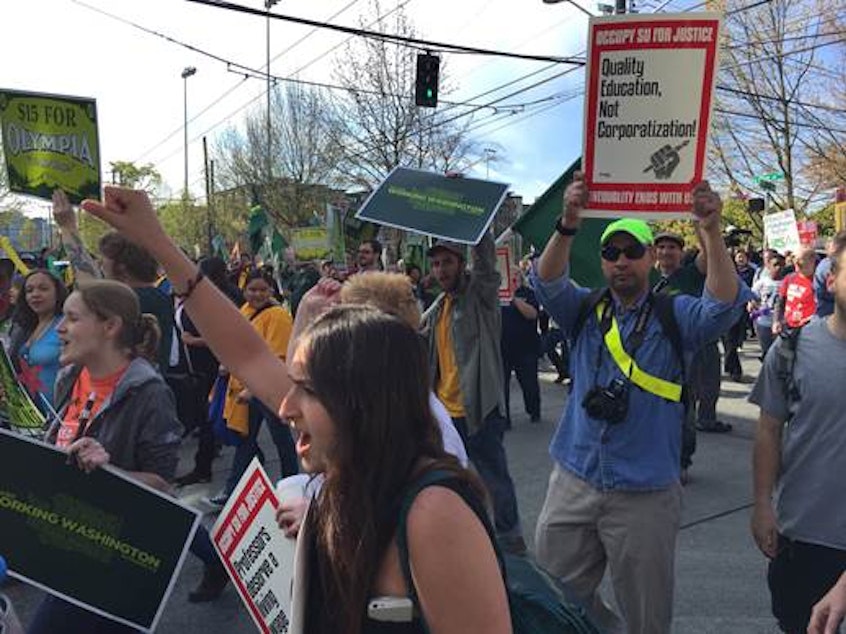Uber Drivers, Teamsters Protest On National Day Of Action For Higher Wages

Unions and low-wage workers held rallies around the state Wednesday to push for higher wages.
Twenty-one protesters, including seven Seattle University faculty members, were arrested after occupying an intersection near the university, which has blocked adjunct faculty members' efforts to unionize.
The rallies promised that Seattle's new $15 minimum wage is just the start of a fight against inequity in America.
One of the half-dozen protests in the Seattle area focused on the way drivers for Uber and other taxi-like services are paid. The company sets the fares that drivers can charge. Drivers use their own cars and pay their own expenses.
Organizers with the Teamsters Local 117 said the drivers often wind up making less than minimum wage. The Teamsters helped drivers form the App-Based Drivers Association last year.
"It's becoming increasingly difficult to become a member of the American middle class," Uber driver Don Creery of Seattle told a crowd gathered in Occidental Park in Pioneer Square. "A year ago, Uber [and] Lyft drivers were solidly in the middle class, then that was taken from us with rate cuts. Uber has the resources; Lyft has the resources to pay us amounts to be in the middle class, just like the companies you work for have those resources, have that money."
"We need our price to be raised," Uber driver Peter Kuel of Kent said. "In order to make your day, to make something for your kid, you have to work for 12 and 14 hours."
Kuel said he works long hours so he can send money to his family living in a refugee camp in war-torn South Sudan.
Uber officials said their drivers in the Puget Sound region average more than $19 an hour in fares.
Unlike hourly employees, Uber drivers have to pay their expenses out of that income. Uber drivers are considered independent contractors. Uber calls them "partners."
"I believe that they're absolutely making a fair amount of money for what they're doing," said Brooke Steger, Uber's general manager in Seattle. "The fares are extremely transparent. We take a 20 percent flat fee. There are no extra hidden fees at all."
Steger said the typical Uber driver works part-time, whenever they feel like it, to supplement their income.
"It's a great opportunity for anyone, especially if they're looking for a flexible schedule," she said.
More than 3,000 people drive for Uber in the Seattle area, according to Steger.
The rapidly growing startup now operates in 56 countries. In December, the San Francisco-based company was estimated to be worth more than $40 billion.

